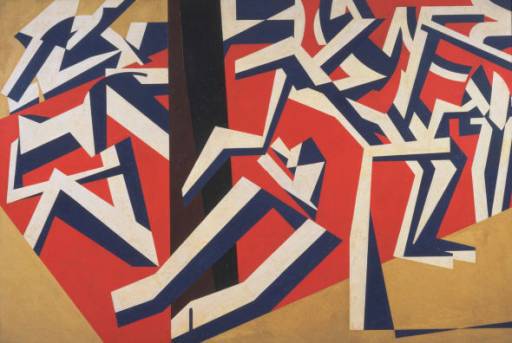
In 2007 I did write a review article for the first volume of Kees Van Der Pijl’s magnum opus: Modes of Foreign Relations and Political Economy, subtitled as Nomads, Empires, States. The title of my review article was “Modes of Foreign Relations vs Uneven and Combined Development: The Marxist Legacy and Relations between and within Alienated Societies”, and it was published by the journal of International Sociology in 2008. The text is online and can be accessed here. Just for self-crediting note, it was written before the reviewed book won the Isaac Deutscher prize in 2008, and the topic was discussed by a panel during the sixth Historical Materialism conference, which also hosts the Isaac Deutscher prize ceremony. Thus it was written independently from the separate journal symposium held on Cambridge Review of International Affairs in 2009 on the topic; and more importantly without any knowledge of the exchange (Alex Anievas refers in the intro to the CRIA symposium) took place between Justin Rosenberg and Alex Callinicos on “UE&CD and the international” somewhere in 2007.
The second and the third volumes of Van Der Pijl’s trilogy titled as The Foreign Encounter in Myth and Religion and The Discipline of Western Supremacy. Both volumes did exceeded my expectations, satisfying enthusiasm I got with the first volume. Although it was my intention I could not yet write a review for the entire work, nevertheless it would be just to say that Van Der Pijl’s trilogy has already taken its place amongst the 21st century classics. Along the pages of the three volumes Van Der Pijl applies Marx’ method of abstraction, that is historical and dialectical materialism, to the relations between alienated world societies, thus to the field of ‘foreign relations’, independently. Doing so the whole project not only smashes the cold blooded, state-maniacal, and disciplinary ‘International Relations’ to the ground, by a strong argument politicizing and historicizing it based on rich empirical material; but it also does so by providing a brilliant historical materialist analysis for rethinking modern nationalism. Van Der Pijl also claims that applying Marx methodology, in a similar way, on different fields of social life, as ideology, power and so on, and integrating those analyses that would be possible to develop a more complete Marxian state and class theories that are essential to advance the critique of today’s global political economy.


 The ICTs-and-Society Network has published its 2015 call: ICTS 2015. The Summit is also the ICTS 2015 (besides FIS 2015, ICPI 2015 and DTMD 2015).
The ICTs-and-Society Network has published its 2015 call: ICTS 2015. The Summit is also the ICTS 2015 (besides FIS 2015, ICPI 2015 and DTMD 2015). On the Creative Question – Nine Theses
On the Creative Question – Nine Theses

 Mücadelelerden mücadelelere bir çağrı: barınma ve kent hakkı için müşterekler için; güvencesiz emeğe ve neoliberal kentleşmeye, savaş ve devlet militarizmine karşı ve yurttaşlık hakkı ve sığınmacılık özgürlüğü için yerel ve küresel mücadeleleri bağlayabilecek örgüt pratiklerini geliştirelim.
Mücadelelerden mücadelelere bir çağrı: barınma ve kent hakkı için müşterekler için; güvencesiz emeğe ve neoliberal kentleşmeye, savaş ve devlet militarizmine karşı ve yurttaşlık hakkı ve sığınmacılık özgürlüğü için yerel ve küresel mücadeleleri bağlayabilecek örgüt pratiklerini geliştirelim. by
by 

